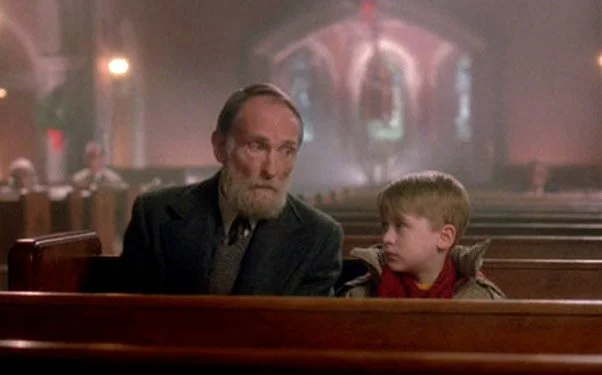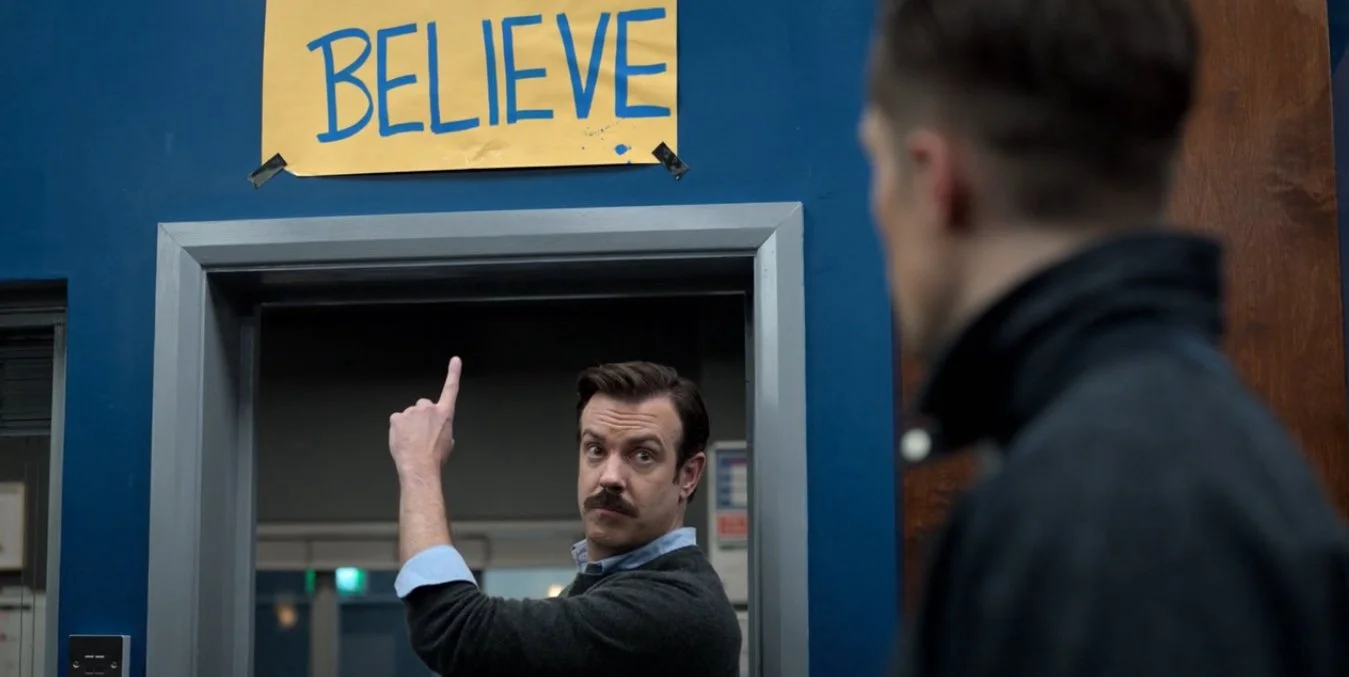Come, Lord Jesus | A Sermon on Grace, Judgment, and Hope Against Hope
A Sermon by the Reverend Mother Crystal J. Hardin on the Third Sunday of Advent (B), December 12, 2021.
Zephaniah 3:14-20; Philippians 4:4-7; Luke 3:7-18
Stir up your power, O Lord, and with great might come among us and, because we are sorely hindered by our sins, let your bountiful grace and mercy speedily help and deliver us (Collect of the Day, BCP 212).
These words from our Collect this morning are a beautiful iteration of a simpler refrain, “Come, Lord Jesus, Come.”
An Advent longing to be sure. And yet it is important to be clear that–even as we are one Sunday closer to Bethlehem –it is not Jesus in the manger that creation groans for, that our hearts long for, but the second coming of Christ in glory to judge the living and the dead. That’s what Advent is after.
Advent is past aware certainly, but it is future oriented.
Theologian Will Willimon reminds us that
Our lives [as God’s people] are eschatologically stretched between the sneak preview of the new world being born among us in [God’s time], and the old world where the principalities and powers are reluctant to give way.
In the meantime, which is the only time the church has ever known, we live as those who know something about the fate of the world that the world does not yet know. And that makes us different.
In Advent, more than any other time, we are called to live into this difference, a difference that, like so many privileges, brings with it a distinct responsibility.
We are called, as Christians, to excavate evidence of grace in a violent world, so that we might proclaim the true Christian hope of God’s sovereignty and goodness even amid, perhaps especially amid, the trials and tribulations of this life.
In Mexico, a migrant truck crash leaves more than 50 people dead. In Australia, a steel vault is built to house an archive that could be critical to piecing together our missteps should humanity be destroyed by climate change. In Michigan, four children dead, and so many others hurt physically and mentally, by the actions of another child. And across six states, tornadoes leave a trail of devastation, with scores dead and many more unaccounted for.
This week’s news, a testament to the violence of a world where powers and principalities are reluctant to give way. In the words of Flannery O’Connor, the Kingdom of God comes, and yet it has to be taken by violence or not at all. You have to push as hard as the age that pushes against you. This from someone who once wrote, “my subject in fiction is the action of grace in territory largely held by the devil.”
Come, Lord Jesus!
An Advent proclamation shouted into a world that is not as it should be, a proclamation that we as Christians can only make with integrity if we acknowledge the very worst.
I don’t know about you, but I have little time for sentimentality –not when it comes to faith –and I have no use for hope that lacks integrity.
In Kate Bowler’s book “Everything Happens for a Reason and Other Lies I’ve Loved,” she writes:
I can’t reconcile the way that the world is jolted by events that are wonderful and terrible, the gorgeous and the tragic. Except that I am beginning to believe that these opposites do not cancel each other out. I see a middle-aged woman in the waiting room of the cancer clinic, her arms wrapped around the frail frame of her son. She squeezes him tightly . . . [and] He laughs after a minute, a hostage to her impervious love. Joy persists somehow and I soak it in. The horror of cancer has made everything seem like it is painted in bright colors. I think the same thoughts again and again. Life is so beautiful. Life is so hard.” [1]
There’s no sentimentality there, and yet there is no lack when it comes to hope.
Do you get what I mean? Only when we see, really see, the truth of what is (what is wonderful and what is terrible), can we submit ourselves to the hope of what is promised: thy Kingdom come, thy will be done.
Come, Lord Jesus!
In Advent, we await the Apocalypse. There’s nothing sentimental about that. Judgment. Sin. Doomsday. End Times. God’s wrath. These are all Advent words, Advent themes.
Fleming Rutledge [2], in my mind the modern patron saint of Advent, tells a story about a cousin of hers that was planning to be married.
She’d been raised an Episcopalian and wanted an Episcopal marriage ceremony, and her grandfather, a prominent minister in a theologically liberal Congregational Church, was asked to do the ceremony. As they were going over the service from the 1928 Book of Common Prayer, they quickly got to the place where the officiant is supposed to say, “I require and charge you both, as ye will answer at the dreadful day of judgment when the secrets of all hearts shall be disclosed . . .”
“Well!” said the grandfather. “You certainly don’t want to use that. We’ll just leave that part out.”
“No, Grandpa!” exclaimed the bride-to-be. “I love the dreadful day of judgment!” [3]
That’s the thing, right? When looking at the news, it’s easy enough, unfortunately, to see where Jesus is so desperately needed. God’s judgment, called for. God’s wrath, welcome.
But the evils lurking out there are also in here (in our own hearts). We who are sorely hindered by our sins are not exempt from the judgment that is to come.
And so, the question is, “How can we learn to Love the Dreadful Day of Judgment” when we know that it comes for us too?
His winnowing fork is in his hand, to clear his threshing floor and to gather the wheat into his granary; but the chaff he will burn with unquenchable fire (Luke 3:17).
This might sound okay directed elsewhere, but frightening and painful when directed at us. The idea of standing before the One from whom no secrets are hid making us want to fight or flee.
“Come, Lord Jesus,” turning to dust in our mouths.
Fellow children of God, this is evil at work –the very enemy of God at play –that would have us hide ourselves before our Creator in shame.
That would convince us that we are unworthy and unlovable as we are, and that would have us clothe ourselves in power, self-righteousness, titles, accomplishments (whatever we can get our hands on) rather than be bare before our Lord.
O’Connor said it best: “all human nature vigorously resists grace because grace changes us, and the change is painful.” And yet, grace –the undeserved favor of God freely given to each of us –grace is what sets us free.
And so, we “dread God’s righteous wrath [even as we] crave the remedy, although the two are the same; we cower in the present dark while we rejoice in coming hope, simultaneously.” [4] And we wait.
In The Voyage of the Dawn Treader, one of C. S. Lewis’s Narnia stories, Eustace commits an act of betrayal that makes him turn into a thick-skinned dragon. One day he is surprised to meet up with Aslan, the Lion and the Jesus character in Lewis’ Narnia, before whom he feels ashamed.
Aslan doesn’t even speak Eustace’s name. He simply says, “Follow me.”
And he leads Eustace over the mountains to a lovely valley with a bubbling spring-fed pond. Eustace wants to take a bath, but before he can, Aslan tells him to undress, which is strange since he has no clothes on, until he remembers that dragons, like snakes might shed their skins. So he scratches and scratches, and the skin comes off layer after layer. It lies there beside him, the ugly dragon skin. But after peeling off several layers of skin like a banana peel, he was still as “hard and rough and wrinkled and scaly” as he was before. Finally, the Lion said, “You will have to let me undress you.”
“I was afraid of his claws, I can tell you”, Eustace says, “but I was pretty nearly desperate now. So I just lay flat down on my back to let him do it.”
“The very first tear he made was so deep that I thought it had gone right into my heart. And when he began pulling the skin off, it hurt worse than anything I’ve ever felt. The only thing that made me able to bear it was just the pleasure of feeling the stuff peel off. You know- if you’ve ever picked the scab of a sore place. It hurts like billy-oh but it is such fun seeing it coming away…. Well, he peeled the beastly stuff right off—just like I’d done it myself the other three times, only they hadn’t hurt-and there it was lying on the grass: only ever so much thicker, and darker, and knobbly-looking than the others had been…
Then he caught hold of me…and threw me into the water. It smarted like anything, but only for a moment. After that it became perfectly delicious and as soon I started swimming and splashing I found that all the pain had gone…. And then I saw why. I’d turned into a boy again.” [5]
Come, Lord Jesus.
Come in might, and yet bearing the marks of utmost humiliation. Come in glory while stooping to wipe the tears from our eyes. Come bearing judgment, yes, and yet also bearing the very scars of our deliverance. For only you can turn us all into your people again. And so we hope against hope.
Come, Lord Jesus, come.
With great might come among us and, because we are sorely hindered by our sins, let your bountiful grace and mercy speedily help and deliver us (BCP 212).
*Original Image by Pauline Baynes.
[1] Kate Bowler, Everything Happens for a Reason and Other Lies I’ve Loved (New York: Random House, 2018), 123.
[2] I’m grateful to Rutledge for gifting me much of my Advent theology and inspiring my Advent preaching.
[3] Fleming Rutledge, “Loving the Dreadful Day of Judgment,” in Advent: The Once and Future Coming of Jesus Christ (Grand Rapids: Wm. B. Eerdmans, 2018).
[4] Kendall Gunter, “Loving the Dreadful Day of Judgment: Fleming Rutledge’s Advent,” Mockingbird, November 11, 2018, https://mbird.com/theology/loving-the-dreadful-day-of-judgment-fleming-rutledges-advent.
[5] C.S. Lewis, The Voyage of the Dawn Treader (New York: Harper Collins, 1994), 113-116.



